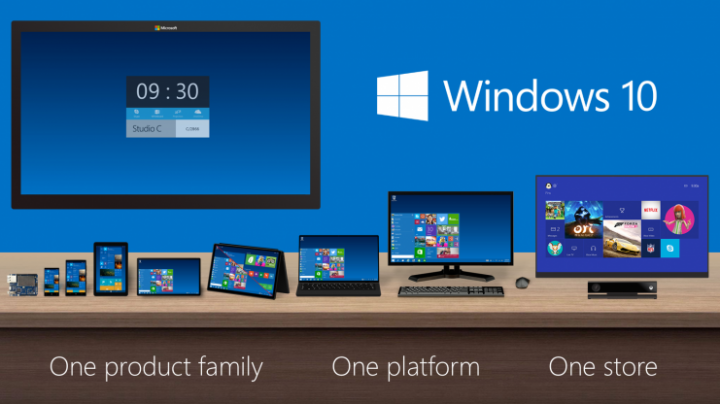Windows 10: Microsoft launches sleek slim operating system that will work on every device (including holograms)
New operating system will come as a free upgrade

Microsoft launched its new version of Windows today, with a simplified look that it hopes will make up for the terrible reaction to its last major release. It also announced new products, including a platform for holograms.
The company was so desperate to escape the legacy of the unloved previous version of the operating system that it missed out the number 9 entirely and went straight to Windows 10. Breaking with the previous version of Windows was an unspoken theme of the launch, which reversed many of the changes made when Windows 8 was released in 2012.
The new upgrade will be free for users on Windows 8.1, and free for people on Windows 7 for the first year.
Windows 10 is much more simplified than its predecessor, with a lighter look and faster performance. It is made to run on devices large and small — from the smallest phone to the biggest TV — and also on new kinds of computers like wearable computers.
Microsoft also announced the Surface Hub, an 84-inch TV screen that’s meant for brainstorming and other activities in the office. That’s part of Microsoft’s plan for a “continuity of experience”, meaning that it won’t matter what kind of computer you’re using Windows on.
The company also unveiled its new browser, codenamed Spartan, which is a vastly stripped down and improved version of Internet Explorer. As well as stripping out much of the code that makes Microsoft’s browser slow and ungainly, it also adds new ways of sharing web pages and information.
The company also revealed new versions of Microsoft Office and other applications. Those and other “universal applications” will work across phones and PCs, and share data between them.
Microsoft also revealed that its voice assistant, Cortana, will be moved to the PC. The function works like Siri and allows users to perform complicated functions like sending emails and searching the computer using their voice.
During the presentation, Microsoft executives showed off the technology. Though they emphasised that the versions being used were experimental and still in development, the voice recognition seemed quick, accurate and clever.
The new operating system also has a range of security features and other improvements.
Introducing the security changes, Microsoft executive Terry Myerson said that if Microsoft 10 had been introduced then many recent high-profile cyberattacks would have been foiled.
Microsoft also launched new gaming features. Customers on Windows 10 will be able to play against people on the Xbox One, using the Xbox Live app that also works across all tablets, PCs and phones.
And Xbox One players will also be able to stream devices to Windows 10 — allowing people to play games from their console on their tablet in the garden, for instance.
Many of the Windows 10 features announced will also move to Xbox. That will be a gradual process, and will help developers that want users to be able to use apps on their TVs as well as their computers to do so using the Xbox, Microsoft said.
Subscribe to Independent Premium to bookmark this article
Want to bookmark your favourite articles and stories to read or reference later? Start your Independent Premium subscription today.

Join our commenting forum
Join thought-provoking conversations, follow other Independent readers and see their replies